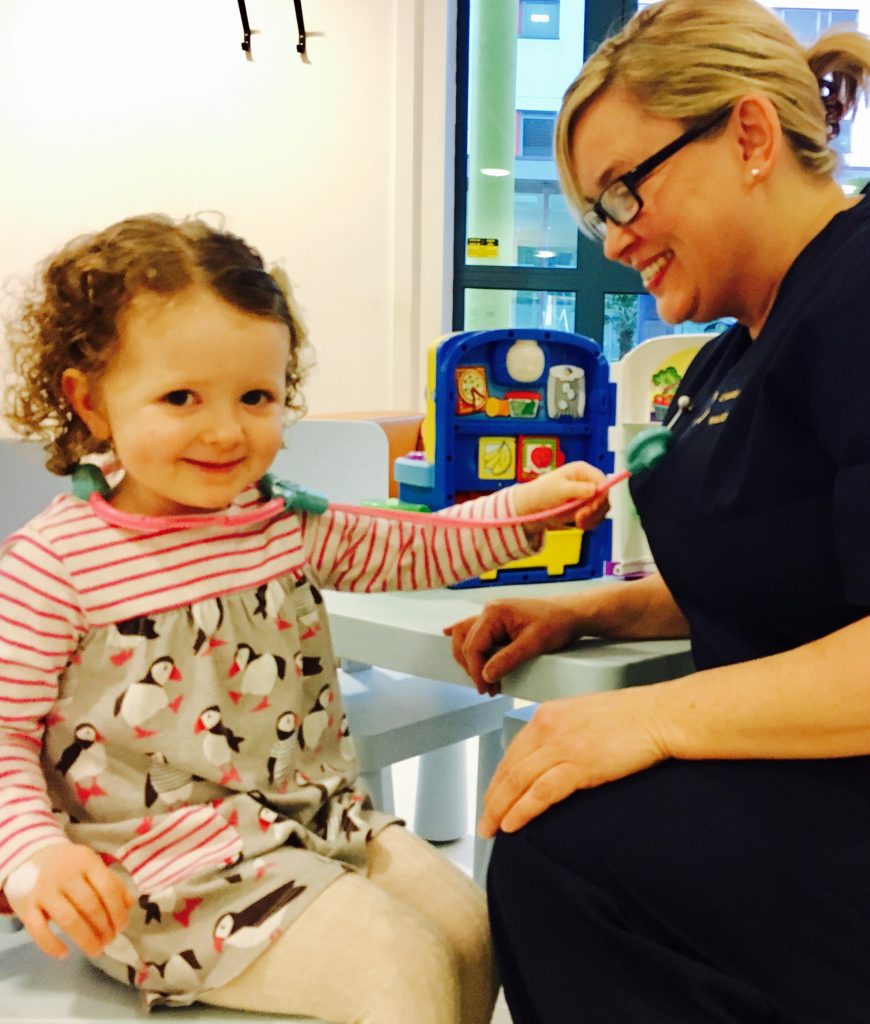
The night shift begins with a handover of patients from the daytime nursing staff. We can see up to 15 children in a shift but 7pm to midnight is often our busiest time for admissions. A child who becomes more poorly as the day progresses may not get to the GP until late afternoon. Then once the decision is made to refer to the assessment unit, there’s also often the need for families to make provision for other children in order to come in. By the time that’s all done and they get to us, it can be around 7 or 8pm.
Tonight our first patient is a little boy who is having difficulty breathing. We assess him quickly and put him on a course of half hourly inhalers. We’ll keep a close eye on him as the evening progresses and once he’s responding well, we’ll start to reduce the dosage. Without the night service he’d probably be admitted on to the ward for the night but all going well, he’ll be OK to go home within a few hours.
At 8:30pm a very worried mum and dad arrive with their five-month-old baby who’s been referred by the out of hours GP service with a high temperature. It’s standard practice to screen all babies who present with a high temperature for sepsis as it’s a potentially life-threatening disorder which can develop very quickly in small children. The baby doesn’t currently have any outward symptoms of a cold or virus either and she isn’t responding well to being touched, so it is essential to get her screened as soon as possible. It takes two nurses and two doctors up to two hours to perform, but we do it here on the unit so we can get started quickly. The test comes back positive and she’s put on a course of antibiotics straight away. Early intervention is vital in these cases, so we’re very glad she came to us when she did.
As I’m preparing to discharge our first young patient from earlier, another little boy is referred to us from A&E. He found the medicine box while his mum was bathing his little sister earlier in the evening and as she couldn’t be certain if he’d swallowed any, she took him straight to A&E. They’ve run some initial checks and he seems OK but we’ll observe him for the next few hours to be sure.Our next patient is a three-year-old who woke up unwell in the middle of the night. He’s struggling to breathe and has a barking cough and when we check his oxygen levels, they’re lower than they should be. Our resident doctor diagnoses croup and as his throat is very sore, we give him some adrenaline through a nebuliser to reduce the swelling. He’s attached to an IV drip and we’ll monitor him over the next few hours. He’s recently been diagnosed with asthma so he may well end up being admitted on to our medical ward for a few days to monitor his oxygen levels.
At 2:30am we get a call from a parent of one of our chronic patients. The assessment unit also acts as an open access service for children with chronic conditions. These families can come to us without a referral if their child needs immediate medical attention. This time it’s a young person who receives food through a nasogastric tube but it’s been dislodged at some point during the night. The assessment unit is a huge reassurance for families like this because we’re on hand 24/7. We also get to know the families which makes such a difference in situations like these.By 5am things are much quieter. We’ve treated and sent home most children tonight but we have a few we may need to admit later on. We work closely with the wards to ensure there are beds for the patients that need it most. 7am and it’s time for the day shift to clock back on. We take our colleagues through a rigorous handover to ensure the best transfer of care and then it’s home and bedtime for me.
By Becky Williams, Acting Ward Manager







